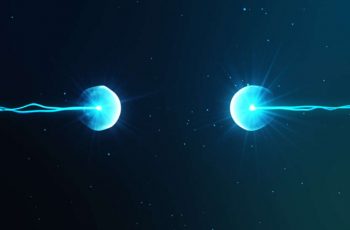Recent research has revealed that ⅓ of Americans don’t get enough sleep, and medical records prove it is not only taking a toll on physical health in the form of heart disease, diabetes, stroke, and/or other conditions but hurting their mental health as well.
According to a recent study in the journal Cognitive Therapy and Research led by Postdoctoral Fellow Ivan Vargas, Ph.D., those who are sleep deprived lose some of their ability to be positive-minded people. Medical experts caution that the inability to think positively is a serious symptom of depression that could be dangerous if left unaddressed.
“In general, we have a tendency to notice positive stimuli in our environment,” said Vargas. “We tend to focus on positive things more than anything else, but now we’re seeing that sleep deprivation may reverse that bias.”
For the study, Vargas and his team evaluated 40 healthy adults, some of which had been awake for 28 consecutive hours, some that had enjoyed a full eight hours of sleep. The participants were then tested on their accuracy and response time at identifying happy, sad and neutral faces to assess how they process positive and negative information.
The study revealed that those who were acutely sleep deprived were less likely to focus on the happy faces, lending well to the suggestion that the study may have implications for those experiencing depression and/or anxiety.
While there are many types of depression ranging in severity – poor sleep is associated with a particularly serious sign of the condition.
“Depression is typically characterized as the tendency to think and feel more negatively or sad, but more than that, depression is associated with feeling less positive, less able to feel happy,” Vargas says, “Similarly, if you don’t get enough sleep, it reduces your ability to attend to positive things, which over time may confer risk for depression.”
It is interesting to note that in the present study, those with a history of insomnia symptoms were less sensitive to the effects of the sleep loss. The team believes this might be because those with a history of insomnia symptoms have more experience being in sleep-deprived conditions and have developed coping methods to modulate the effect of sleep loss.
Vargas and colleagues recently presented a related study at SLEEP 2017, the 31st Annual Meeting of the Associated Professional Sleep Societies LLC, on the association of insomnia and suicide, finding that people who suffer from insomnia are three times more likely to report thoughts of suicide and death during the past 30 days than those without the condition.
The study comes amid a growing body of knowledge associating sleep disorders and depression. For example, ongoing research presented this year at SLEEP 2017 from a multi-center NIH-sponsored “Treatment of Insomnia and Depression” study suggests that cognitive-behavioral therapy for insomnia may help achieve depression remission in those suffering from both depression and insomnia who sleep at least 7 hours each night.
Additionally, a new study in the journal Child Development furthers our understanding of the connection between late-night cell phone use, mental health, and disrupted sleep, finding that using a cell phone at night can increase depression in teenagers and lower their self-esteem.
In conclusion, we need to be aware of the ramifications that can accompany poor sleep patterns. If you suffer from restlessness or clinical insomnia, get help. Your health depends on it.
If you found this article interesting, please share with friends and family by clicking the button below!




